- Home
- >
moral dimensions of the old solar system
A vexed question: can moral laws, or moral truths, be different in a story from what they are in real life?
Stid: Surely it's just a matter of tolerating different viewpoints; no big issue at all - we already know that each author has to a greater or lesser extent a different morality from the reader, simply because everyone is different.
good for story, bad for fact
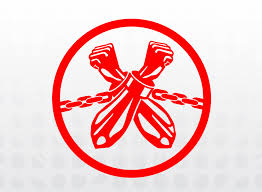
Harlei: As usual you're missing the point, Stid. The clashes of principle can come within the work of a single author. Compare, for instance, Citizen of the Galaxy with Glory Road. In the one, furious hostility to slavery; in the other, admiration expressed for the Barsoom books, in which slavery pervades and is accepted unquestioningly by all the characters.
Stid: Well then, it shows that Heinlein accepted, not slavery per se, but slavery in the imaginary context of Barsoom.
Zendexor: But this is precisely my point! You have hit the nail on the head - yet you don't appear to see anything remarkable in what you've said, but I do. I contend that we're on to something interesting here. Call it double-think, if you like. The fact that something which is morally unacceptable in the real world, can be acceptable in an imaginary world. I call it a "fact" because I don't see any way round it -
Stid: And you're troubled by it, because you think, "Truth is all one, so how can this be?" But you see, Zendexor, truth is only all one ultimately. Just as the forces of nature are all one but only if you go back to the ultimate Big Bang.

Zendexor: Now you're sounding intelligent, Stid. Your argument - which isn't completely new to me, I must add - allows the various "other moral dimensions" of literature to be at least partially explicable, partially allowable, because they co-exist as separate distributaries of an ultimate river of unified truth.
But the co-existence can still be rather startling.
Let's follow it up in detail. See how the idea works.
So, we have slavery on Barsoom, slavery being all right on Barsoom. How? Because it fits there. It helps the stories, gives them colour. How? Inequalities in destiny, enabling splendours to shine more brightly in contrast? Also: mitigating nature of the institution itself - not racially based; slaves are not ill-treated, they merely have low status socially. Still, who'd be a slave? Ah, but - here I am arguing with myself - supposing the reward for putting up with being a slave were to find oneself on a real Barsoom! Ah, I might go for that reward - I could win my freedom through faithful service, perhaps, and then enjoy hundreds of years of life-span on a wonderful world...
But hang on - maybe I'm rambling. Trying to unite the various streams of principle too soon. It might be that I couldn't accept my lot after all, as a slave on Barsoom. Not ever. In which case, does the "reader me", contemplating the "Barsoomian me", feel obliged to jettison Barsoom, condemn it, cease reading the books? No because the ultimate unity of truth might require waiting periods that are longer than my own consciousness. Aeons during which the good in Barsoom - which temporarily can't be extricated from the bad - feeds into the ultimate good of all things. (Oh dear, I'm in danger of sounding like one of Olaf Stapledon's Last Men...)
Stid: Slavery apart, there are other moral problems in the Barsoom books. The bloodthirstiness of John Carter, for instance.
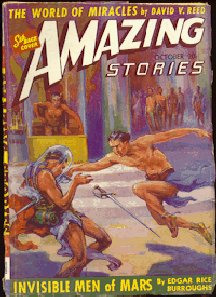
"You have three xats to live, Motus," I said; "you had better make the most of them."
He rushed at me like a madman; but I sidestepped him and as he turned I took off one of his ears as neatly as a surgeon could have done it - I thought he was going to faint, for his knees seemed to give beneath him and he staggered about for a moment.
I waited for him to recover control of himself, and then I went to work on him again. I tried to carve my initials on his breast, but by this time there was not a whole place large enough; from the waist up he looked like a plate of raw hamburger. [Llana of Gathol, p. 178]
Zendexor: Carter wouldn't call it bloodthirstiness - he'd say Motus was a sadistic bully who deserved his comeuppance - but I know what you mean.
The truth is, the reader's empathy must hover and dart in an agile manner when reading narratives of which John Carter is the protagonist.
Identify with him at some moments, stand back at others. Then you'll be all right.
What all this means, is that we're dealing with something big here. Barsoom is a mighty creation, of good and bad, an addition to the reader's life, taking the imagination by storm. Morally you've got to take the rough with the smooth, and view the whole with its good and bad like the light and shade in a picture. Translate the bad into a colourful thing. Like the way the word "evil" in Leigh Brackett's work becomes, almost, just a colour.
It wouldn't work in ordinary life. But this isn't ordinary life - this is a supplement to it. The rules are different. That's the whole point of the enlargement of scene that they give us...
It's like the shift in moral ideas you get from reading a great historical novelist such as Alfred Duggan, who shows you, for instance, how reasonable it seems for a Norman noble to consider it shameful to have to work for a living. Me, work? Instead of profiting from war and pillage as befits a man of my rank? Shocking idea!

And even the moralist C S Lewis has his hero accepting the harshness of Merlin. Taxed with the druid's "appalling bloodthirstiness", Lewis' hero replies quite equably.
"I have been startled by it myself," said Ransom. "But after all we had no right to expect that his penal code would be that of the nineteenth century. I find it difficult, too, to make him understand that I am not an absolute monarch." [That Hideous Strength, p.345]
Stid: Lewis could accept a spectrum of variations between moral priorities, but he couldn't take the beyond-good-and-evil message of Star Maker. Said it "ends in devil-worship".
Zendexor: Matter of degree, I guess. The universe-wrecking habits of the Star Maker in his off days must have sent Lewis over the edge into condemnation. He couldn't stomach what he perceived as cruelty. But otherwise he could be flexible in the matter of different "moral universes". Skip for instance to the idea of the longaevi as mentioned by Lewis in his The Discarded Image.
Harlei: The longaevi...?
Zendexor: Borderline spirits, beings who according to the medieval world view were ambiguously good/evil or were neither... creatures who owed allegiance neither to Heaven nor to Hell, at least during a long interim period... elves, fairies, fauns, nymphs... Those were the longaevi.
And perhaps they have equivalents among more human categories. I mean, for example, we can still puzzle over the question, is there room, ultimately, for likeable rogues - personal or planetary - in the Kingdom of Heaven? A profound question - I wonder what Lewis' reply would have been.
'beyond good and evil' - is just evil
Stid: He did say good-humouredly to Arthur C Clarke in a meeting in a pub at Oxford, after arguing about the British Interplanetary Society and space travel enthusiasts generally, that he was "sure you're all very wicked people, but how boring it would be if everyone was good".
But he wouldn't have any truck with high-flown destinies which inflicted suffering on the weak. No matter how nobly they were expressed - as by the glamorous yet evil witch-queen Jadis in his Narnia book The Magician's Nephew. "Ours is a high and lonely destiny," says Jadis, who sacrificed her world's entire population to her "greatness". See the underlying similarity between this and the very different-sounding Neptunian in Last and First Men:
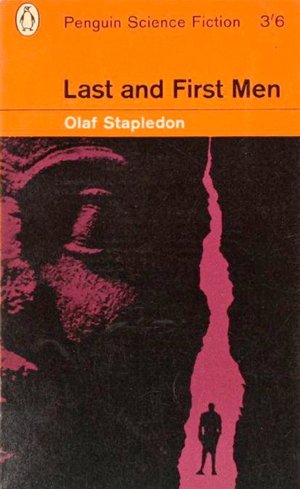
...the racial mind has greatly perplexed us as individuals, and we can scarcely be said to remember more of it than that it was of extreme subtlety and extreme beauty. At the same time we often have of it an impression of unspeakable horror. We who, in our familiar individual sphere are able to regard all conceivable tragedy not merely with fortitude but with exultation, are obscurely conscious that as the racial mind we have looked into an abyss of evil such as we cannot now conceive, and could not endure to conceive. Yet even this hell we know to have been acceptable as an organic member in the austere form of the cosmos.
The sort of stuff that might have been translated by Ransom as, "Bad stuff good... no, that can't be right..."
Zendexor: You're thinking of that brilliant scene in Out of the Silent Planet when Ransom tries to translate Professor Weston's bombast into the language of Mars, for the benefit of the Oyarsa, the ruling Intelligence of that world.
Weston begins:
"To you I may seem a vulgar robber, but I bear on my shoulders the destiny of the human race. Your tribal life with its stone-age weapons and beehive huts, its primitive coracles and elementary social structure, has nothing to compare with our civilization - with our science, medicine and law, our armies, our architecture, our commerce, and our transport system which is rapidly annihilating space and time. Our right to supersede you is the right of the higher over the lower. Life - "
"Half a moment," said Ransom in English. "That's about as much as I can manage at one go." Then, turning to Oyarsa, he began translating as well as he could...
"Among us, Oyarsa, there is a kind of hnau who will take other hnaus' food and - and things, when they are not looking. He says he is not an ordinary one of that kind. He says what he does now will make very different things happen to those of our people who are not yet born. He says that, among you, hnau of one kindred all live together and the hrossa have spears like those we used a very long time ago and your huts are small and round and your boats small and light and like our old ones, and you have one ruler. He says it is different with us. He says we know much. There is a thing happens in our world when the body of a living creature feels pains and becomes weak, and he says we sometimes know how to stop it. He says we have many bent people and we kill them or shut them in huts and that we have people for settling quarrels between the bent hnau about their huts and mates and things. He says we have many ways for the hnau of one land to kill those of another and some are trained to do it. He says we build very big and strong huts of stones and other things... And he says we exchange many things among ourselves and can carry heavy weights very quickly a long way. Because of all this, he says it would not be the act of a bent hnau if our people killed all your people."
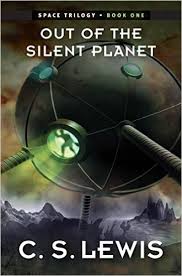
Stid: The "might is right" view - turned into farce in this sparkling satire.
Zendexor: And as Weston gets more abstract, Lewis lands his punch on the "evolutionary imperative" kind of twaddle -
As soon as Ransom had finished, Weston continued:
"Life is greater than any system of morality; her claims are absolute. It is not by tribal taboos and copy-book maxims that she has pursued her relentless march from the amoeba to man and from man to civilization."
"He says," began Ransom, "that living creatures are stronger than the question whether an act is bent or good - no, that cannot be right - he says it is better to be alive and bent than to be dead - no - he says, he says - I cannot say what he says, Oyarsa, in your language. But he goes on to say that the only good thing is that there should be very many creatures alive. He says there were many other animals before the first men and the later ones were better than the earlier ones; but he says the animals were not born because of what is said to the young about bent and good action by their elders. And he says these animals did not feel any pity."
"She - " began Weston.
"I'm sorry," interrupted Ransom, "but I've forgotten who She is."
"Life, of course," snapped Weston. "She has ruthlessly broken down all obstacles and liquidated all failures and today in her highest form - civilized man - and in me as his representative, she presses forward to that interplanetary leap which will, perhaps, place her for ever beyond the reach of death."
"He says," resumed Ransom, "that these animals learned to do many difficult things, except those who could not; and those ones died and the other animals did not pity them. And he says the best animal now is the kind of man who makes the big huts and carries the heavy weights... He says that if he could kill you all and bring our people to live in Malacandra, then they might be able to go on living here after something had gone wrong with our world. And then if something went wrong with Malacandra they might go and kill all the hnau in another world. And then another - and so they would never die out."
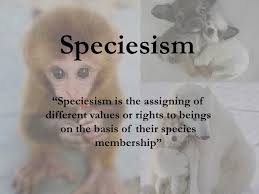
Harlei: We can call this evil doctrine specism -
Stid: I've heard the word is speciesism. But it won't last - too hard to pronounce. I like yours better...
Harlei: We could use the shorter one for the idea of supremacy of one intelligent species over another.
Stid: So - you're not into "Animal Liberation" as such?
Harlei: No, not altogether - since I like my fish and chips... though I am certainly against vivisection. The main point is to be against the chauvinistic humans-must-rule-the-Galaxy stuff.
Zendexor: Put that way, it doesn't seem to be much of an issue. No one would propound Weston's view nowadays...
Stid: Don't be too sure of that. The issue may yet be revealed as a live one - if intelligent life is ever found out there. And anyhow, the value of Lewis' treatment of "specism" is that he illustrates how it can wrap itself in high-flown philosophical language. He gets Ransom the translator to strip this wrapping off, to expose the underlying message for the crude thing it is.
Zendexor: But maybe we ought to be exploring some less crude, more mysterious, less certain issues. Moral dimensions that really give us pause for thought. Different angles.
no excuses
Here's an example to consider. What happens when the progressive politician, Bonforte, gets kidnapped by chauvinist Humanity Party supporters before he is due to be ceremoniously adopted into a Martian "nest"? His supporters have to hire the actor, Lorenzo Smythe, to impersonate him and go through the ceremony. Smythe doesn't understand the necessity at first. Why not just explain to the Martians what has happened? They can't blame Bonforte for missing the ceremony - it's not the man's fault that he was kidnapped. But no...
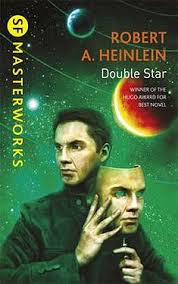
"The hitch is that we don't dare admit that you - I mean that he - is missing. Once we have this adoption thing wrapped up, we can put you out of sight, then announce the kidnapping as if it had just taken place - and make them take apart the city rivet by rivet. The city authorities are all Humanity Party appointees, but they will have to co-operate - after the ceremony. It will be the most wholehearted co-operation you ever saw, for they will be deadly anxious to produce him before the whole Kkkahgral nest swarms over them and tears the city down around their ears."
"Oh. I'm still learning about Martian psychology and customs."
"Aren't we all?"
"...Mmm ...What leads you to think that he is still alive? Wouldn't their purpose be better served - and with less risk - just by killing him?"...
"I see what you mean. But that, too, is tied up with Martian notions about 'propriety'." (He used the Martian word.) "Death is the one acceptable excuse for not carrying out an obligation. If he were simply killed, they would adopt him into the nest after his death - and then the whole nest and probably every nest on Mars would set out to avenge him... Matter of obligation and propriety - in some ways a Martian's response to a situation is so automatic as to remind one of instinct. It is not, of course, since they are incredibly intelligent. But they do the damndest things..." [Double Star, p.55-6]
Edgar Rice Burroughs, Llana of Gathol (1941, 1948); Robert A Heinlein, Double Star (1956); Citizen of the Galaxy (1957); Glory Road (1963); C S Lewis, Out of the Silent Planet (1938); That Hideous Strength (1945); The Discarded Image (1964); The Magician's Nephew (1955); Olaf Stapledon, Last And First Men (1930); Star Maker (1937)
For the "moral liquidity" of Barsoom see the OSS Diary for 24th March 2017, regarding assassination and arena combat.
Similarly for the issues surrounding the Sack of Zodanga see John Carter and Zodanga - How to Glide Over Dilemmas and From 1520 to Barsoom.
The lack of humanitarian intervention at the international level is discussed in Isolationism on Barsoom.
And for an analogy between ethical dimensions and extra time-axes, prompted by those bloodthirstly games in the arena, see Playing pick-up spectra.










































